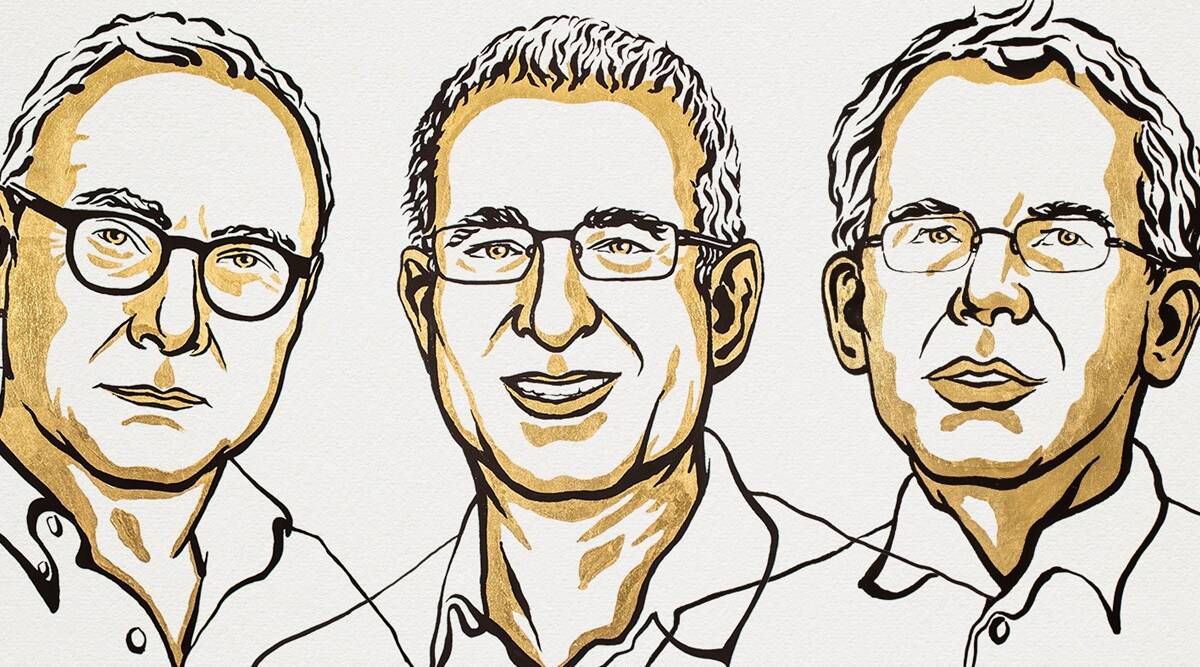The announcement of this year’s Nobel Prize in Economics rejoiced much of academia and the intelligentsia in economics.
The research behind the Nobel furthered evidence supporting the “credibility revolution,” a term used to describe the use of econometrics to “provide more credible estimates of empirical effects.”
Plainly, this means you should stick to the facts, no matter how unpopular they might be.
David Card, one of the recipients of the prize, found that the “minimum wage does not reduce hiring,” contrary to what conventional wisdom often suggests.
Now, I don’t expect students to be interested in this sort of stuff. Economic jargon like “labor economics” or “econometrics” bores even the most passionate about economics. I have a concentration in the latter and I seldom consider it a palatable subject.
Nor do I expect any enthusiasm from any student body for topics like measuring the impact of the minimum wage on business growth, quantifying the extent to which property taxes reduce inequality or determining how climate change will exacerbate global poverty. These are questions better left to the economists.
Nevertheless, in the three years that I have been teaching economics as an SI, a private tutor and as a fellow student, I rarely find that students are uninterested in these topics if they are taught in a comprehensible, straightforward manner. It is my belief that economics can be fun.
Nevertheless, even if it’s not so, we have a responsibility to learn about it. Even within the pages of this very publication, students are calling for all sorts of interventions in the economy almost out of habit.
While I applaud this widespread interest, I doubt the majority making these students have as much conception of the actual facts as their enthusiasm suggest.
For example, a 2010 Pew Research Center poll found that only 14% of Americans knew what the inflation rate was at the time. Another study by the National Council on Economic Education showed that two-thirds of Americans didn’t know that money loses its value in times of inflation.
For a populace wanting to raise the debt ceiling and QE infinity, not knowing the facts is a frightening prospect.
Many Americans, especially students on our campus, flaunt their support for President Biden’s Build Back Better plan. But, as reported by CBS News, “only 10% of Americans describe themselves as knowing a lot of specific things about what’s in [the] plan.” The majority admit to either not knowing the specifics or not knowing anything at all.
I don’t understand how so many people can support something they don’t understand.
In any case, I’m not suggesting you sign up for a monetary economics course, though we do have one in the catalog. But, seeing as inflation has soared past 5% from a mere 1% last year, learning about economics is crucial to understanding the consequences of policy.
On a smaller scale, shouldn’t you understand interest rates when deciding whether to get a loan? This may seem like common sense, but 1 in 4 Americans don’t know the interest rate on the mortgage they pay each month.
“Student loans are crippling millennials right now,” says associate professor of economics Areendam Chanda. But if graduating with thousands of dollars in debt is akin to crippling yourself, then failing to learn about basic concepts like the rate on your loan is like throwing away your crutches altogether.
The good news is that you don’t need a Ph.D. to learn about economics. In reality, all it takes is a few Google searches and a hint of curiosity. You can begin by taking this fun, short quiz on economic literacy from the Council for Economic Education.
If you’re looking for in-depth analyses of issues that matter, the Federal Reserve publishes numerous reports on the economy. If a class is what you’re looking for, sign up for ”The Economics of Life” next semester, taught by renowned professor Daniel Keniston.
If you’re trying to enhance your major, work in policy or go to law school, then taking supplemental economics courses is the way to go. Simply want to understand debates such as the minimum wage better? Get a minor.
Ultimately, learning about economics is crucial to have a prosperous, civic society. But it can also be fun, so don’t let the mathematical models sway you away from this field.
October is the National Economic Education Month. We should all celebrate it by learning a bit more about economics.
Samuel Camacho is a 21-year-old economics junior from Maracaibo, Venezuela.







